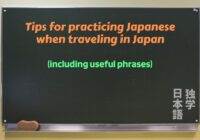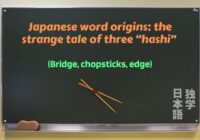Tips for practicing Japanese when traveling in Japan
It’s easy to study a foreign language by cooping yourself up in your room and trying to memorize rules and words. But once you actually start using it, you realize that learning in isolation can only take you so far, and when actually speaking with natives you can really start learning the language. Traveling to… Read More »







